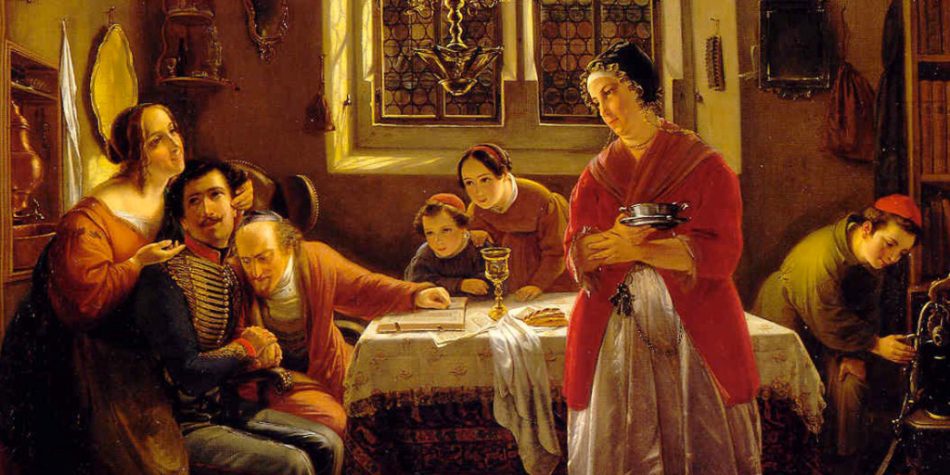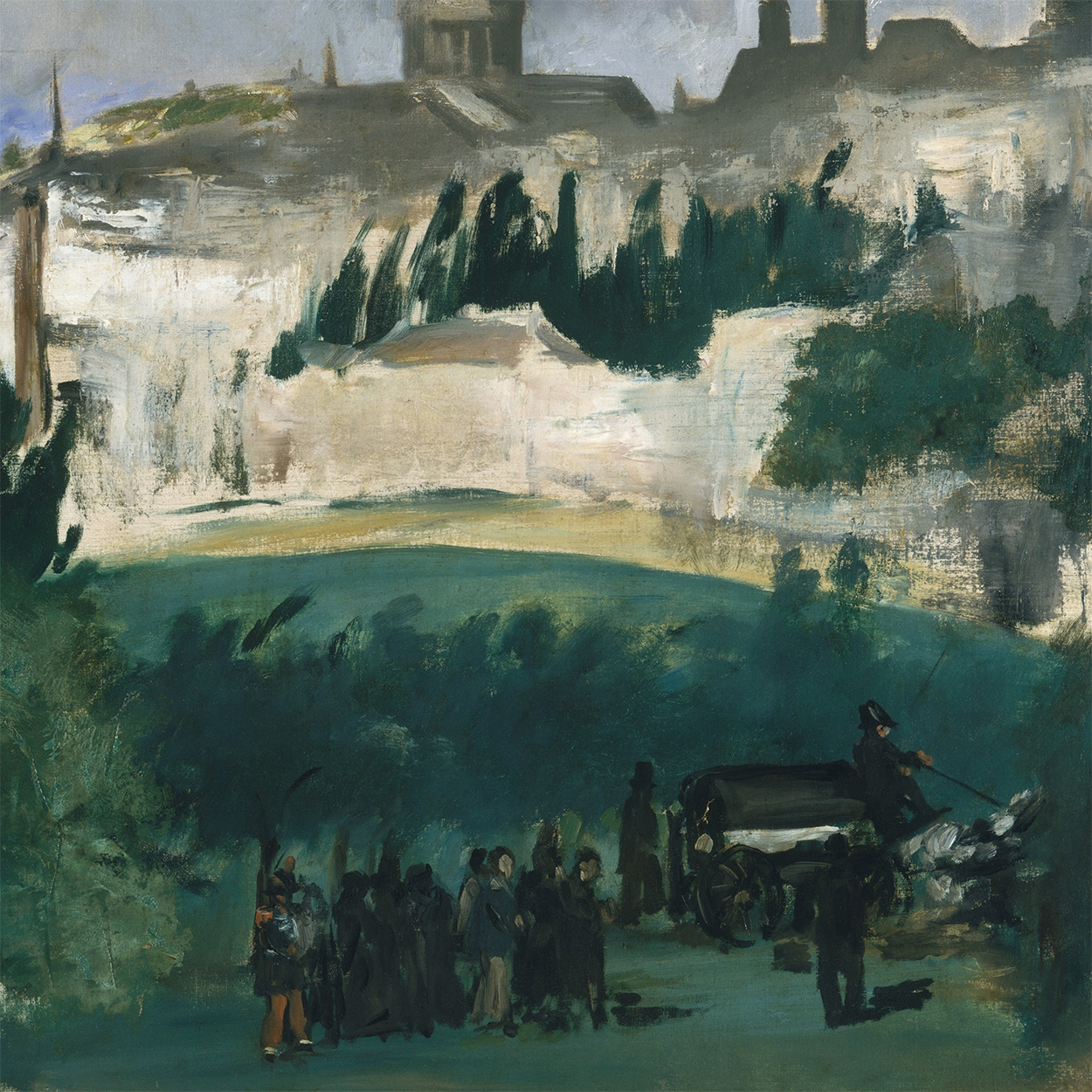In various publications, we are on record about our profound respect for the Jewish faith and Jewish families. This includes an article in the official newspaper of The Church of Jesus Christ of Latter-day Saints where Dave encouraged fellow Latter-day Saints to “learn from our Jewish friends about how to make the Sabbath a delight.”
We sometimes are asked why we have such appreciation for our Jewish friends and their faith. It is a long story but it starts with the fact that Dave’s godmother is Jewish. When, as an infant, Dave was to be baptized in the Episcopal Church, Dave’s mother, Elizabeth, insisted that his godmother be her best friend Ann Scinski. This was despite the fact that Father Ewald, the priest who baptized Dave, insisted that only a baptized and confirmed Christian could be a godparent. Elizabeth’s love of Ann and of the Jewish faith influenced Dave throughout his youth. When Dave converted to The Church of Jesus Christ of Latter-day Saints (at age 19), his love and appreciation for Judaism only increased to the point that he later spent a year studying prayer book Hebrew with Cookie Cohen at Beth David Synagogue in Greensboro, North Carolina, and several months studying Torah and Talmud with Rabbi Chaim Adelman at the Orthodox Chabad House in Amherst, Massachusetts. In a class at BYU called Family in World Religions, he teaches extensively about Jewish family life.
Marriage and Family Life in Strong Jewish Families
As part of our American Families of Faith national research project, we have conducted in-depth (about 2-hour) interviews with 30 American Jewish families who rabbis had recommended to us as good examples of strong Jewish families. The families welcomed us into their homes and shared the ways that their religious beliefs and practices influenced their marriage and family lives. We are grateful to them for their generosity and their insights.
Interviewees belonged to three main branches of Judaism: Reform, Conservative, and Orthodox. There are important similarities yet some meaningful differences in the ways that people from the Reform, Conservative, and Orthodox branches live out their Judaism. Because many Orthodox Jews write the divine name “G-d” in order to respect the name of the Lord, we follow that practice in the direct quotes below. Jewish rituals and traditions enabled families to celebrate times of joy and to cope with difficulty, pain, and loss.
Based on participant reports, Jewish rituals and traditions enabled families to celebrate times of joy and to cope with difficulty, pain, and loss. A youth named Caleb, from the Reform branch, shared how Jewish ritual helped him cope with the violent death of his uncle:
I had an uncle who was murdered. … I found comfort [in] the ritual that’s associated with death. [It] really helped me deal with the suddenness and the sadness of it. … The burial ritual, the funeral ritual, the Shiva ritual of staying at home [with family] for seven days … are things that helped me cope in the short term. And during the service … the Kaddish prayer … the prayer for memory [or] prayer for the dead, [was] very comforting for me. It’s not that I necessarily believe that there is a G-d listening to my prayers. It’s more that the comfort of doing something that I’ve done all of my life has made it comfortable and given me the space to deal with those kinds of trying situations.
Relational Strengths in Marriage
The three subthemes related to marriage include: (a) marriage is sacred, (b) ritual facilitates relational success, and (c) relational success is a duty.
Theme 1: Marriage is sacred. A sacred and idealized view of marriage was offered by Moriah, an Orthodox wife, who expressed how sharing a religious identity with one’s spouse can enrich marriage:
I believe that we’re supposed to try to find a partner … to share [life with] on the deepest level; [the] joyous things that life will bring us, and then the incredible challenges that will certainly come. … If you share the religious … if you have that … in common … a religious level, a spiritual level, the joys will be even more joyful and more enriching, and the really difficult times will be more bearable because you have each other.
Eli, an Orthodox husband stated,
The purpose of marriage is to increase the holiness of human relationships. … We hope to have an emotional, intellectual, and spiritual dimension, where we help each other to try to ascend to a higher level, or at least become more what we should be.
Leah, a Conservative wife, similarly expressed how she experienced holiness in her marriage:
I have … felt, metaphorically, the hand of G-d at very pivotal moments in life. I mean, one can be together in a room and have little emotional contact, but there clearly have been times when the contact between us has been so strong and so different. I … look at those times as [experiences] when [my husband] and I were connected more than usual, and those would be the times … that we were closer to G-d and each other, and we were moving toward being more holy individuals and as a couple. I think that those times, coincidentally, some of them definitely did come as a result of religious observance …
Theme 2: Ritual facilitates relational success. Tevia, a Reform husband, explained how sharing Judaism had unified his marriage to Ruth:
There’s a lot of stuff I think we take for granted about our relationship in terms of knowing that we’re on the same page with stuff. We don’t even need to talk about it. … We’re on the same page. … We just know that if [my wife] said, “I want to stay home this Saturday and just observe Shabbat [at home],” she knows I’m there. If she wanted to do something at the synagogue, we go.
In response to the question, “Are there ways that your religious beliefs or practices help you to avoid or reduce marital conflict?” Asha responded,
The first thing that comes to mind is the routine. And another thing that I’ve come to understand and believe is that religious belief and truly religious moments don’t just come from … nowhere. One has to be in the habit of religious practice and religious observance. … If you wait for the mood to hit you, it never will. But if you go, if you observe, if you practice, on a regular … basis, then you’re open to G-d. … I think that our routine of going to synagogue every week, that it is something we do whether we really feel like it or not … it is what we chose to do. It’s about the Sabbath. It’s what you do on the Sabbath. It is such a calming experience, when tensions are high, when frustration is high …
For Israel, an Orthodox husband, “the rules” of Jewish tradition reportedly helped him and his wife avoid conflict. He explained,
Things that might have been conflicts before aren’t even issues because we know the rules. What are we doing on Saturday? Well, that’s not an issue. Where and what are we eating? It’s not an issue. … This is the way it is. I want to go [somewhere], we look at the calendar. ‘Oh no, we can’t go here because it’s Yom Tov, it’s a holiday,” [but] it’s … okay. It’s not a conflict [between us]. These are not issues because there’s a higher authority that we all are agreed with. That’s our priority.
Theme 3: Relational success is a duty. Tamara expressed:
I think one of the strong points of Judaism is the sense of personal responsibility, and certainly, in any conflict we’ve had it’s been really important to own up to whatever part we have in the conflict. And that’s something that comes straight from Judaism, that thought of, “Did I do something wrong? And if so, I need to fix it, and apologize for it”—as opposed to just, “Well, it’ll go away, forget about it.” And that’s one of the things that I really admire about Jerry. He will always apologize. He will always say, “I’m wrong.”
A Conservative husband named Asher expressed how marriage comes with a responsibility to work through difficulties and preserve the marriage “at all costs.” He shared,
[Marriage] is a sacred bond that should be upheld at all costs, if at all possible. I think from that perspective, [my wife] and I have worked a lot on [and are] continually working on the marriage—because of that [perspective]. It is not something that will come easy, so you need to continually work at it. It’s kind of like a second job … if you want it to continue [going well], you’ve got to keep on working on it.
Uriel, a Conservative husband, explained that,
The Jewish version of domestic tranquility, of amity in the home, what Jews call shalom bayis, peace in the home, is a very big concept in Jewish thinking. It is not the notion of a compliant wife who will go along with everything a guy says, and therefore they have peace. … It’s quite the opposite. They both know how to argue, they both hold their own. I think it’s precisely because we can argue that we can do well … That’s the secret.
Relational Strengths in Parenting
We now share some findings on relational strengths in parenting. The three subthemes are (a) ritual facilitates relational success, (b) relational success is a duty, and (c) God is a relational model.
Theme 1: Ritual facilitates relational success. When asked how her beliefs or practices had helped her avoid, reduce, or resolve conflict, Eija, a Reform mother, responded:
There’s a big emphasis in our services on taking responsibility for [and] forgiving other people, on praying for forgiveness for yourself, praying for healing for other people. … It take[s] you out of yourself. And it works with the kids, too, because there’s prayers that the parents say to their children. … [It’s] a nice bonding thing. … [It] relax[es] all those tensions.
Pesha, a mother, reported feeling closer with her children during weekly parent-child blessings:
Blessing the children on Friday night … is a special time when the parents bless the children. It is a beautifully wonderful and tender moment that we … do and our children have come to expect. [We don’t just] put our hands on their heads and we bless them … we also each [say] something to each child about something that we’re proud of that they’ve done this week. It’s just a wonderful thing that … we didn’t make that up. … [I]f we just look at what our tradition teaches us, it was already there. Jewish parents have been doing that for thousands of years.
Theme 2: Relational success is a duty. Many participants explained that high-quality parent-child relationships were not a luxury but rather a duty within Judaism. Benjamin, a 20-year-old Orthodox son; Deborah, his 17-year-old sister; Hannah, their mother; and Eli, their father, discussed this idea:
Benjamin (son): [My family] argue[s] over little things all the time, of course, like anybody. But we’ve never had any serious, emotional arguments that disrupted general family life. I’m sure that Judaism has a lot to do with that … because you have laws governing how you’re supposed to act towards your parents and towards your children. And when you have a legal system, almost, [that prescribes] in what ways you can respond, you aren’t so totally at sea, as many people are.
Deborah (daughter): On how to … interact with your parents.
Benjamin (son): And your children. It goes both ways.
Hannah (mother): [We have] mutual respect.
Eli (father): We’re very wise and loving parents. [kidding]
Benjamin (son): Yeah. . . Having … respect for your parents is something that is not generally a common trait in this society, but … it’s impossible to be Halakhically observant and not have respect for your parents.
A similar sense of responsibility and equity shared between parents and children seemed to be important to Alexandra, a Reform mother, who reflected,
One of the things that we do regularly … when I’m wrong, [is that] I’m able to tell my daughter, “I’ve been wrong, and this is why I’ve been wrong.” And to ask her forgiveness is a really important part of Judaism. … If you have wronged another individual, you have to work out the relationship with the individual before you can get real forgiveness from G-d. [However], that’s not why I do it. … The real important part to me is that my daughter knows that I’m able to say “I’m wrong” when I’m wrong. … I teach her that.
Theme 3: God as a relational model. Moriah, a Hasidic Orthodox mother, described a Jewish book that helped her use God’s example in her parenting. She explained,
It’s a book about forgiveness and understanding and using G-d’s example. You don’t just make one mistake and G-d just turns His back on you. It’s … about forgiveness, modeling our own forgiveness and understanding and patience as parents … [after] G-d’s example. … I have thought there are things people could do that you could just never forgive them for, and I’m thinking now that that’s kind of harsh. … G-d doesn’t … do that. … I’ve enjoyed reading that [and applying it to] the relationship with our children, and how we parent.
Conclusion
Here we provided only a few examples and brief discussion of the ways that Judaism influences marriage and family life. Readers who are interested in learning more about Jewish families, as well as couples and families from various faiths, are invited to look here. Because Judaism is the “mother faith” of Christianity (and influential in Islam as well), and because Judaism is such a familial faith, Christian, Muslim, and other families can learn much from how their Jewish friends live their faith in their homes. We have a great deal of respect as well as some “holy envy” for the ways that our observant Jewish friends honor the teachings and traditions of the Torah to strengthen marriage and family life. We commend a careful study of Jewish family life to our friends of our own faith, other faiths, or no faith.
About the Authors: While we ourselves are active (devoted) members of The Church of Jesus Christ of Latter-day Saints, in our work in the American Families of Faith project, we seek to highlight the strengths of our friends of various faiths. We have developed a sense of deep respect and even holy envy for these families and their faiths. Additionally, the book chapters from which these articles are adapted included two coauthors who are devoted members of those faiths.
If you like listening to audiobooks and podcasts, we have recorded a set of conversations about the families we interviewed that includes additional quotes from mothers, fathers, and youth, more of our experiences in attending their services, as well as personal experiences with friends of other faiths. These podcasts are available at:

















